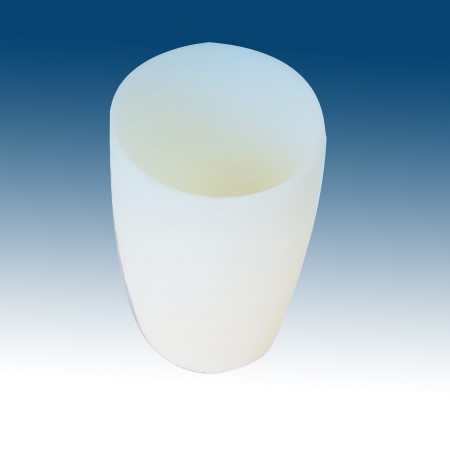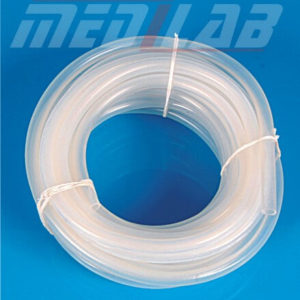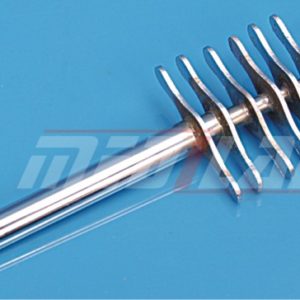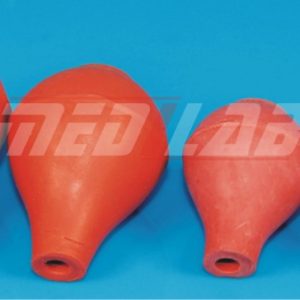Description
| High Alumina, Crucible – Conical Form | ||
| Catalog Number | Capacity (ml) | Top Outside Diameter (mm) |
| 19505/01 | 2 | 18 |
| 19505/02 | 5 | 35 |
| 19505/03 | 20 | 42 |
| 19505/04 | 30 | 43 |
| 19505/05 | 50 | 53 |
| 19505/06 | 100 | 86 |
| 19505/07 | 150 | 90 |
| 19505/08 | 170 | 61 |
| 19505/09 | 200 | 94 |
| 19505/10 | 250 | 100 |
| 19505/11 | 300 | 87 |
| 19505/12 | 500 | 128 |
| 19505/13 | 750 | 125 |
The MEDILAB Conical Form Crucible is a high-performance alumina vessel designed for precise heating, melting, ashing, and material analysis in laboratory and industrial settings. Its conical geometry ensures uniform heat distribution and efficient sample handling, especially during high-temperature procedures. With exceptional thermal and chemical stability, it is a critical tool for research institutions, QA/QC labs, and production environments requiring reliable, contamination-free results.
Key Features
- 99.7% high-purity alumina construction for excellent thermal and chemical resistance
- Conical design supports uniform heating and optimized sample collection
- Unglazed surface enhances thermal performance and eliminates contamination risk
- Withstands temperatures up to 1750 °C—ideal for high-temperature furnaces
- Exceptional mechanical strength for long-term, heavy-duty use
- Low porosity ensures clean, accurate analyses and prevents reagent absorption
- Dimensions produced with tight tolerances for consistent laboratory performance
Material Specifications
- Material: 99.7% Alumina (Al₂O₃)
- Thermal Properties:
Max operating temperature: 1750 °C
High resistance to thermal shock and heat cycling - Chemical Properties:
Inert to most acids, alkalis, and laboratory reagents
Resistant to corrosion and chemical attack during high-temperature applications - Mechanical Properties:
High density and hardness
Excellent abrasion and wear resistance - Standards:
Manufactured according to ISO and DIN-aligned laboratory ware quality standards
Technical Specifications
- Available Capacities: Multiple volumes available as per the table above.
- Design: Tall conical body with uniform wall thickness
- Surface: Unglazed for maximum heat transfer
- Tolerance: Precision-formed for accurate dimensional consistency
- Accessories Included:
Supplied as a single conical crucible (lids available upon request, if applicable)
Handling & Precautions
- Safe Use:
Use tongs or insulated gloves when handling hot crucibles
Preheat gradually to increase lifespan and reduce thermal stress - Cleaning:
Use non-abrasive cleaners; avoid metal brushes
Rinse thoroughly and dry before reuse - Autoclaving & Heating:
Fully autoclavable
Suitable for furnaces up to 1750 °C - Do’s:
Store in clean, dry conditions
Allow controlled cooling after high-temperature use - Don’ts:
Do not expose directly to flame
Avoid sudden temperature changes or quenching
Applications
- Chemical and Analytical Labs: Ashing, calcination, gravimetric analysis
- Pharmaceutical QA/QC: Moisture determination, residue analysis
- Industrial R&D: Material testing, sample melting, thermal processing
- Biotechnology & Academia: Sample preparation and high-temperature experiments
- Metallurgy & Ceramics: Firing, melting small metal/ceramic samples
This crucible supports routine and advanced workflows where thermal stability, purity, and accuracy are essential.







